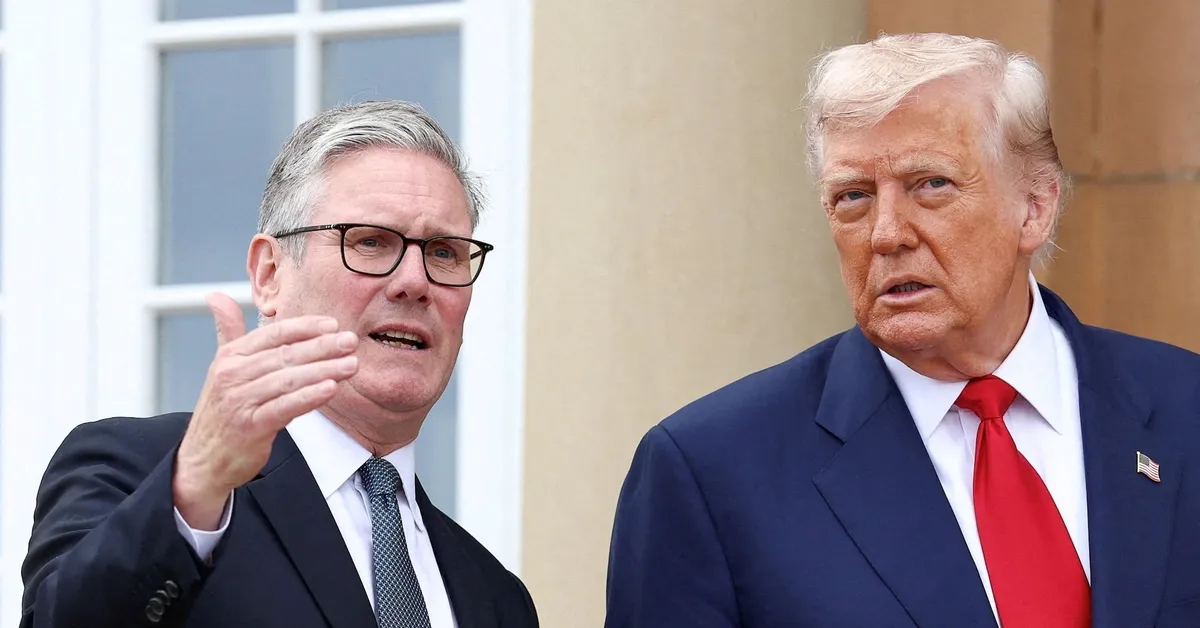
On Thursday, September 18, 2023, Donald Trump is set to meet with British Prime Minister Keir Starmer for a pivotal discussion aimed at emphasizing global affairs during the U.S. leader's unprecedented second state visit. This meeting comes after a day filled with pomp and ceremony, where Trump was seen riding in a carriage with King Charles and enjoying a lavish state banquet.
During the meeting, Trump and Starmer will celebrate the unveiling of a substantial £150 billion ($205 billion) investment package from the U.S. into the UK. This financial commitment is expected to rejuvenate the so-called 'special relationship' between the two nations—a relationship that Starmer has diligently nurtured since Trump assumed the presidency in January.
While the meeting holds promise, it is not without its challenges. A press conference is scheduled for later in the day, where reporters may press both leaders on the controversial late sex offender Jeffrey Epstein. Starmer recently dismissed Peter Mandelson as ambassador to the U.S. due to his documented ties with Epstein, and Trump's past connections with the financier have also faced scrutiny.
Political analyst Evie Aspinall, director of the British Foreign Policy Group, highlighted the pressures both leaders face. Starmer is currently navigating a turbulent domestic landscape and requires a constructive international narrative, while Trump aims to showcase the benefits of maintaining strong ties with the UK.
Trump, speaking alongside King Charles at Windsor Castle, described his visit as "truly one of the highest honours of my life." Starmer hopes that this positive sentiment will prevail during their discussions, guiding Trump away from sensitive topics such as Britain’s online safety laws and the country’s stance on Israel.
Instead, Starmer is keen to highlight the significant deals forged between the two nations. Notably, a new technology pact involving major companies like Microsoft, Nvidia, Google, and OpenAI is set to bring in £31 billion ($42 billion) in investments over the next few years, focusing on areas such as artificial intelligence, quantum computing, and civil nuclear energy.
While Starmer appears to have come to terms with the likely lack of further reductions on steel and aluminium tariffs, he can confidently assert that Britain is increasingly becoming a preferred destination for U.S. investment, particularly in the financial services, technology, and energy sectors.
Starmer plans to steer the conversation towards foreign affairs during Trump's visit to his Chequers country residence. A key focus will be persuading Trump to adopt a firmer stance against Russia regarding its full-scale invasion of Ukraine. Recently, Trump labeled Russia as the aggressor in the conflict, but he has also insisted that Europe ceases all purchases of Russian oil before he considers imposing stricter sanctions.
Furthermore, Starmer faces pressure to address the ongoing assault on Gaza with Trump, who has shown frustration over Israel's air strikes against Hamas leaders in Qatar yet has largely supported Prime Minister Benjamin Netanyahu. Trump's criticism of some European nations recognizing a Palestinian state has added another layer of complexity to the discussions, although he expressed openness to Starmer's position on the matter.
These geopolitical issues are expected to be significant points of contention during the meeting, with potential for some awkward moments as both leaders navigate these sensitive topics.
In conclusion, Trump's visit represents a crucial opportunity for both leaders to strengthen their nations' ties while addressing pressing international issues. The outcomes of their discussions could have far-reaching implications for U.S.-UK relations and global affairs.